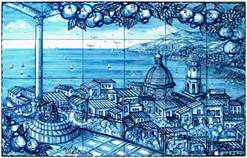Speaker
Mr
Sebastian Kuger
(Department of Radiation Oncology, University Würzburg)
Description
In its function as an ATP-dependent molecular chaperone the heat shock protein 90 (Hsp90) facilitates the correct folding and maintenance of other proteins, commonly known as Hsp90 clients. These clients include many oncogenic proteins, as transcription factors, growth factor receptors, steroid hormone receptors and various signaling proteins. Protein stability is hampered in solid tumors, due to diffusion limited supply with nutrients and oxygen, resulting in cellular stress and a high demand for molecular chaperones. Therefore, targeting the Hsp90 chaperone function is a promising approach for radiosensitisation. This study explores the antitumor efficacy of the novel Hsp90-inhibitor NVP-AUY922 combined with ionizing radiation (IR) in in vitro and in vivo experiments.
For the in vitro experiments, the human HT 1080 fibrosarcoma cell line was treated with 200 nM NVP AUY prior to IR, under normoxic or hypoxic conditions. Inhibition of Hsp90 increased radiosensitivity, regardless of the oxygen supply of tumor cells, as determined by reduction of the colony forming ability. Treatment with NVP-AUY922 caused a depletion of the relative radioresistant S-phase and an accumulation of cells with G2/M DNA content. This increase of cells in the G2/M-phase of the cell cycle prior to IR enhanced sensitivity to radiation, as determined by flow cytometrical measurement of cell cycle and DNA double-strand breaks.
To generate human tumor xenografts, we inoculated HT 1080 cells in the flanks of female immunosuppressive SCID mice. When tumors reached a volume of about 100 mm³, mice were treated i.p. with 30 mg/kg NVP-AUY922 24 h prior to IR with 2 Gy. Mice weight and tumor volume was monitored 3 times weekly. In addition, control, drug-treated and/or irradiated tumors were analyzed for the expression of certain marker proteins. Treatment of tumor bearing mice with NVP-AUY922 before IR resulted in a protraction of tumor growth rates, as well as in a prolonged median survival time. Analyzing the protein expression levels by western blot and immunhistochemistry, we observed that various proteins, including p-AKT and Hsp90, are affected by Hsp90-inhibition, indicating an in vivo activity of NVP-AUY922.
This preclinical study clearly demonstrates the radiosensitizing abilities of NVP-AUY922 in hypoxic and normoxic in vitro experiments as well as in human in vivo xenografts, and might have import implications for the treatment of solid tumors.
Author
Mr
Sebastian Kuger
(Department of Radiation Oncology, University Würzburg)
Co-authors
Mrs
Astrid Katzer
(Department of Radiation Oncology, University Würzburg)
Dr
Cholpon S. Djuzenova
(Department of Radiation Oncology, University Würzburg)
Mrs
Ines Elsner
(Department of Radiation Oncology, University Würzburg)
Prof.
Michael Flentje
(Department of Radiation Oncology, University Würzburg)

